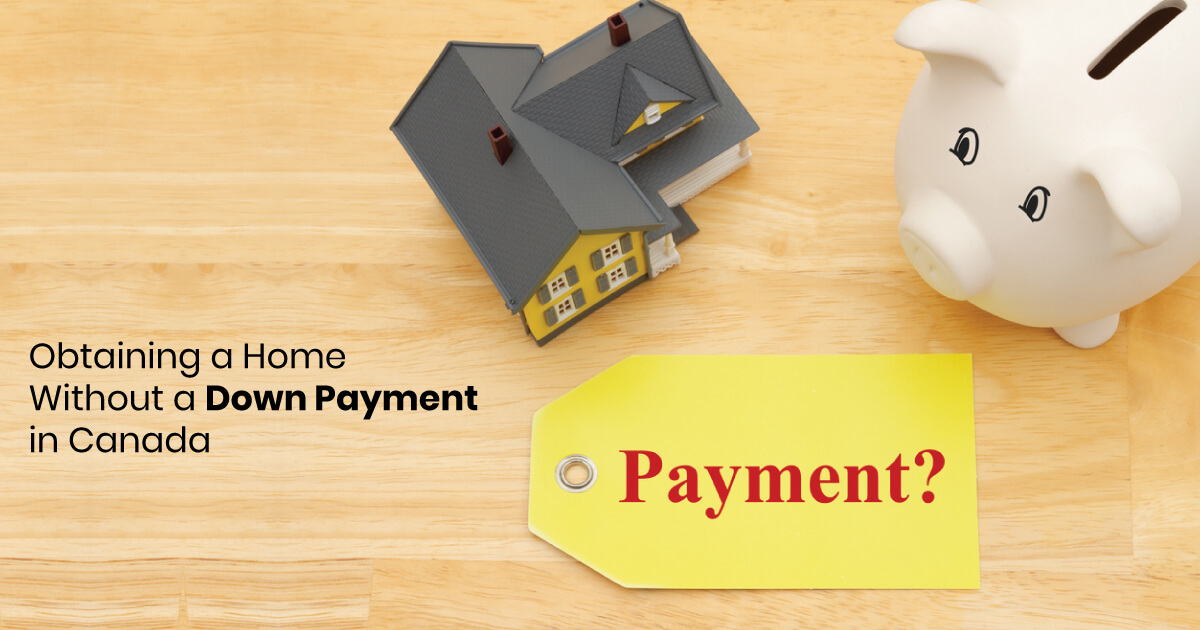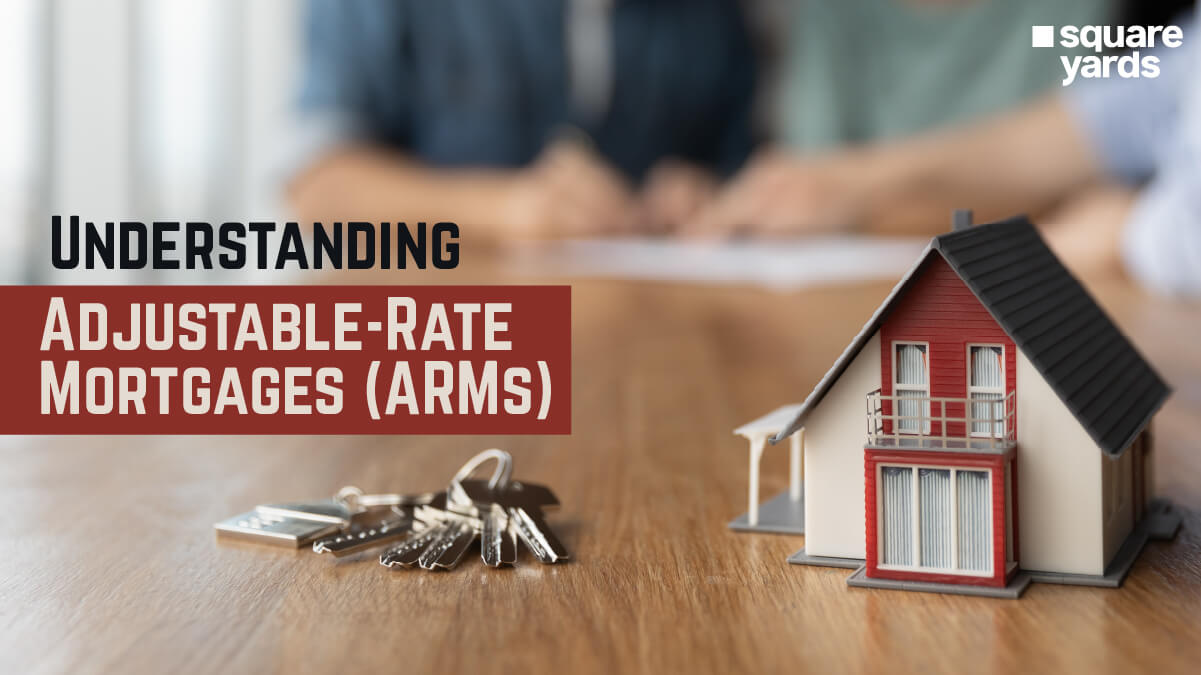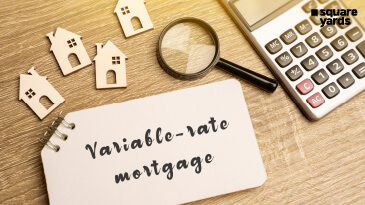Buying a home in Canada could be a mystery for several people, owing to the variety of myths and misconceptions surrounding the process. this is why we decided to compile a comprehensive guide for you, wherein we have discussed the various aspects of purchasing a home in Canada, such as the process of house mortgage in Canada, the affiliated expenses, etc. continue reading to know more on the same below!
What is The Meaning of A Mortgage
If you want to buy your property, but don’t have enough finances available for it, you can apply for a real estate home loan in Canada. this allows you to borrow money from a bank up to 95% of the property value but comes with some eligibility criteria, conditions, and costs.
So, in other words, a mortgage is an amount that is paid by the bank, on the condition that the bank will own your property, until you repay the money borrowed, with the relevant interest.
Different Kinds of Interest Rates Applicable To Mortgages?
When applying for a house mortgage in Canada, you would need to pay a certain amount as interest , as per the current rate of the financial institution, which is attached to your principal amount. this amount is paid in the form of monthly EMIs, which comprises both the Principal and the Interest amount.
There are two kinds of interest rates applicable in case of mortgages:
-
Fixed Rate of Interest
This interest rate remains fixed for a certain period, which is essentially the tenure of your loan.
For example, when you take a home loan on 7% interest for 5 years, the rate of interest remains constant for the duration of the loan.
-
Variable Rate of Interest
This interest rate fluctuates according to some internal or external policies. for example, it depends on the interest rate that is introduced by the BOC (Bank of Canada). This interest rate influences all other banks and financial institutions to set their interest rates on mortgages and loans accordingly. you have the liberty to switch from variable to fixed rate of interest and vice versa, but you must consult with the concerned mortgage provider before doing so, as it may come with some costs.
Procedure To Apply For a Mortgage in Canada
You need to follow some simple steps to apply for home mortgages loans in Canada:
Step 1 – Assess Your Credit History
Maintain a commendable credit history before you apply for a real estate home loan in Canada. You can do so by making sure that you don’t:
-
- Have any missed payments
- Have any unpaid loans
Step 2 – Accumulate the Down Payment
If you have enough savings, you can set them aside for a down payment on your property, or you could go for a no down payment for house mortgage in Canada. these loans are taken independently of your home mortgage loans. You must also consider the Government schemes that have been launched to provide financial support to first-time homebuyers in Canada, to ensure financial security.
Step 3 – Maintain the Documents Required for the Mortgage
Consider the list of documents required to process the house mortgage in Canada and maintain a file of all required paperwork.
Step 4 – Contact The Right Mortgage Provider
Find the best financial institution or mortgage provider who can offer the lowest rate of interest to you
Step 5 – Get a Pre-Approval
Getting approval may take up to a week, during which you can find the property of your choice and accumulate documents that are necessary to complete your home loan.
Step 6 – Zero Down Payment Mortgage or The First-Time Home Buyer Incentive
There are several Government schemes and down available payment loans, so you must understand all options, before you initiate the mortgage.
Step 7 – Find A Property and Submit Your Mortgage Application
Look for the right property you want to invest in, apply, and arrange for the payment to be made to the seller.
Step 8 – Repay Your Mortgage
Normally you get 15-25 years to repay your mortgage, but you must make quick payments, to minimise your repayment tenure.
Need To Submit The Documents For a Mortgage?
The documents that you must maintain before applying for a house mortgage in Canada are your:
-
- Proof of identity
- Proof of Address
- Proof of Income
- Investment Records
- Bank Statements
- Credit History from your home country for 12 months
If there are two or more borrowers, each of them has to provide his own set of documents plus credit history.
Tips For Plan The Budget When Buying Property in Canada
Here are some tips that will help you manage your mortgage better:
-
- Find the best mortgage lender, who can offer you low rates of interest on your home loan. Also, look out for a lender who can help you with a loan for a down payment
- Understand everything about default insurance, which is payable if the down payment is less than 20%, so try and maintain it above 20% of the property value
- Try and make repayments early, to pay off your loan
- You must set aside money for the following expenses:
- Legal fees, which can vary between $2,000 to $3,000
- Land transfer tax
- House inspection services
- Expenses to fix issues in the house
- Maintenance costs
- Insurance premiums
- GST/HST
- Title insurance
- Service charges
- Additional taxes and fees
- Moving costs
- Furniture and fittings
Role of a Down Payment In Canada?
The Canada Mortgage and Housing Corporation (CMHC) has laid out certain rules:
-
- Payment of a minimum 5% down payment on home purchases that are less than $500,000
- 10% down payment on home purchases that are more than $500,000 but less than CAD 999,000
- 20% down payment on home purchases that cost over a million dollars
- You would also need to pay mortgage default insurance for any home loan with a down payment of less than 20%.
What is Zero Down Mortgage?
If you don’t have ready finances to pay for your down payment when applying for a mortgage or home loan, then you can borrow the same amount as a separate loan, which is generally interest-free, and pay the seller.
This amount is also referred to as a zero-down mortgage.
What is The Down Payment on a House Loan Option?
There are various options to get a mortgage down payment loan:
-
- Using your credit card. However, you must be wary of the high-interest expenses and the short pay-back time before you use it
- Applying for a loan and house mortgage in Canada from a bank or a financial institution. You will however be unable to use the same source for a down payment loan
- Applying for a personal loan or a no down payment mortgage loan
- Growing your savings corpus, or seeking financial help from your parents, relatives, or close friends, with a promise to repay the debt on time
Approval For a Mortgage Down Payment Loan
To get approval for a mortgage down payment loan, you simply need to take two things into account, that is, maintaining a:
-
- Solid credit score, repaying all your EMIs and debt on time, and avoiding any missed payment
- Steady source of employment and an easy flow of income
Credit Score for No Down Payment Mortgage Canada
Irrespective of whether you apply for a home mortgage, with a mortgage down payment in Canada, you will need to maintain a credit score of 600 or above.
Is It Wise to Get a Zero Down Payment Mortgage in Canada?
Buying your own house is surely a dream come true for many Canadians, but it comes with benefits and drawbacks.
The benefits of getting a zero down payment mortgage in Canada are that:
-
- You own your property in Canada
- Pay your EMI towards your mortgage, as opposed to paying rent
- You also have the leverage to borrow 20% of your mortgage down payment Canada from another provider to save yourself from the CMHC default insurance
The drawbacks are that if you are already under the obligation of several loans and functional credit cards, you must assess your financial position and figure out how you can fit in your mortgage.
Tips To Start Saving for a Down Payment on a House
Even if you settle for a no down payment mortgage when purchasing a house for the first time in Canada, you will still need to save funds to bear the closing costs of a mortgage.
Here are some tips that will help you save money for a down payment or for bearing the costs attached to a mortgage:
-
- Make changes to your lifestyle and quit the expensive food delivery options for some time
- Be disciplined and follow a set budget, keeping aside some amount of your income as savings each month
- Cut down on your travel, transportation, recreation, and luxurious weekends, to save up for your home purchase
- Try automating your savings, so that it becomes a mandate every month to deposit money in your savings account
- Work on improving your credit score, as that can get you a lower rate of interest on your mortgage, which eventually leads to saving money
Government Programs that Assist Canadian homebuyers
The Federal Government of Canada has launched several schemes to encourage first-time homebuyers to purchase a home. Some of these schemes are as follows:
-
First-time Home Buyer Incentive
This is a program where the Government funds a part of your home purchase through shared equity.
-
Down Payment Assistance Programs
This program helps you to apply for an interest-free loan to accumulate the down payment for buying a new house & house mortgage in Canada.
This is applicable, if you have no arrangement to pay for the down payment on your house. This scheme is available in Nova Scotia, PEI, and Manitoba.
-
GST/HST Rebate on New Housing
This program allows you to get the advantage of a GST/HST discount or exemption for new home buyers.
-
RRSP Home Buyer’s Plan
This program allows you to use $35,000 from your Registered Retirement Savings Plans, to pay for the first-time purchase of your new home.
-
Home Buyers Tax Credit
This program helps you with a tax credit of $750 for first-time home buyers
-
Provincial Land Transfer Rebate
This program is available in Ontario, PEI, and BC, and allows first-time homebuyers to get a rebate on land transfer tax. This tax forms an integral part of your home-buying closing costs.
Conclusion
It is important and a dream comes true for many Canadians to purchase a home of their own. if you have all the right credentials, and meet the eligibility criteria, you must contact a professional, to assist with the process of purchasing your home. additionally, as mentioned in the sections above, you must learn everything about home mortgage loans along with the concept of the no down payment mortgage before you start the process of purchasing a home in Canada.
You May Also Read
| Construction Mortgage Rates Canada | Mortgage Rates Canada |
| Apply For Vacant Land Mortgage | Vacant Land Mortgage |
| 6 Best Alternative of Reverse Mortgage Loan | Reverse Mortgage Loan |
| Guide To Real Estate Mortgage Process | Real Estate Mortgage Process |
Frequently Asked Question (FAQs)
Does No Down Payment Mortgage Canada Even Exist?
Yes! The no down payment mortgage Canada exists, which means, you can borrow the down payment as a loan from another lender, implying a double debt (home mortgage plus down payment loan), which you will need to repay. Besides that, you can take help from the Government under the first-time homebuyers scheme, in which the federal Government helps you purchase a home.
Does A Zero Down Payment Mortgage in Canada Hurt Your Credit Score?
No! There is no negative impact till the time you are repaying all debts on time, without missing a single payment or EMI.
What Is the Government of Canada Program for First-Time Homebuyers?
The Government of Canada program for first-time homebuyers is a national program launched by Canada in which the Federal Government funds a part of your home purchase through shared equity.
What Is the Government of Canada’s Housing Incentive?
The Government of Canada housing incentive helps first-time homebuyers by just paying 5% or 10% amount of the property price as a down payment. The Tax-Free First Home Savings Account allows people in Canada, who are a minimum of 18 years of age, to save $40,000 tax-free to buy a home, with an annual contribution limit of $8,000 in the year 2023.
What Is an RRSP Home Buyer’s Plan in Canada?
The RRSP home buyer's plan in Canada allows you to purchase a house for yourself or another related person with any kind of disability, by withdrawing funds from your RRSP (Registered Retirement Savings Plan). You can repay the loan within 15 years and get a tax exemption in the year in which you contribute.











